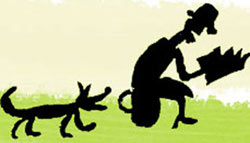Рецензия Хью Олмстеда
джерело экомед отзывы Функциональные средства сегодня становятся незаменимыми как для лечения, так и для профилактики заболеваний, потому что человек живет до тех пор, пока его органы выполняют свои функции, и качество жизни зависит от полноты выполнения этих функций. Именно из-за отсутствия функциональных средств в арсенале современной медицины и существуют неизлечимые заболевания. К сожалению, сегодня функции нашего организма нарушаются не только возбудителями заболеваний или возрастом...Harvard University
Research & Bibliographic Services
Harvard College Library
Cambridge, MA 02138
Date: Jan. 27, 1999
To whom it may concern:
I am writing in support of publication of the Russian-language dictionaries proposed by Mr. Aleksei Plutser-Sarno. To summarize: they are both timely in terms of market appeal and unique in terms of quality and richness; I am convinced that they will be a big credit to any publisher.
After the fall of the Soviet Union and the lifting of the lid of censorship, one of the areas that have seen a sudden boom is the non-standard, undocumented side of the Russian language. This is a rich world of slang, jargon, obscenities, and specialized kinds of language used by special in-groups: criminals, drug addicts, political prisoners, hippies, soldiers, punk and other youth cultures, etc. etc. In living use this actually thrived during the Soviet era, but it stayed underground; it was either unmentionable in print or officially downplayed. There were some dictionaries published abroad by emigrees during the Soviet era, but these were largely limited in scope or not serious. In recent years dozens of publications have attempted to capitalize on the sudden new openness, but again, the areas they cover are limited, and/or the way they are put together leave much to be desired. Still, the fact that so many such works are being published is a sign that there is a thriving market. It is a pity that the existing material doesn't do more justice to the potential of the subject matter.
Something that could make a huge contribution are the materials assembled by Mr. Plutser-Sarno: they are absolutely unique in quality and scope. He covers a range of areas that have never before been documented, and his methodology is superb. I have been acquainted with his work for many years, and have always been astounded at his
dedication and the intensity and amount of work he accomplishes, at the material he manages to dig up, and at the intelligent and professional way he handles it. His reviews of published dictionaries and encyclopedias show something of the quality of his standards, workmanship and analysis, for instance in the Moscow journal "Na postu" for May, 1998. I have long believed that it is a shame that such low-quality material is being published in such large quantities, when Mr. Plutser-Sarno's materials would be so much better. They not only deserve to be published: they are crying to be published. If there is a possibility to further the publication of his dictionary or dictionaries, it would be a major step in documenting the richness of the Russian language and culture, it would give a uniquely valuable tool into the hands of the many people who could use such a reference aid, and it would be to the great credit of the publisher.
I would be happy to amplify or clarify any of the points above: I can be reached at my working telephone number at Harvard University
Sincerely,
Dr. Hugh M. Olmsted
Slavic Specialist, Research Services
<<другие рекомендации>>

